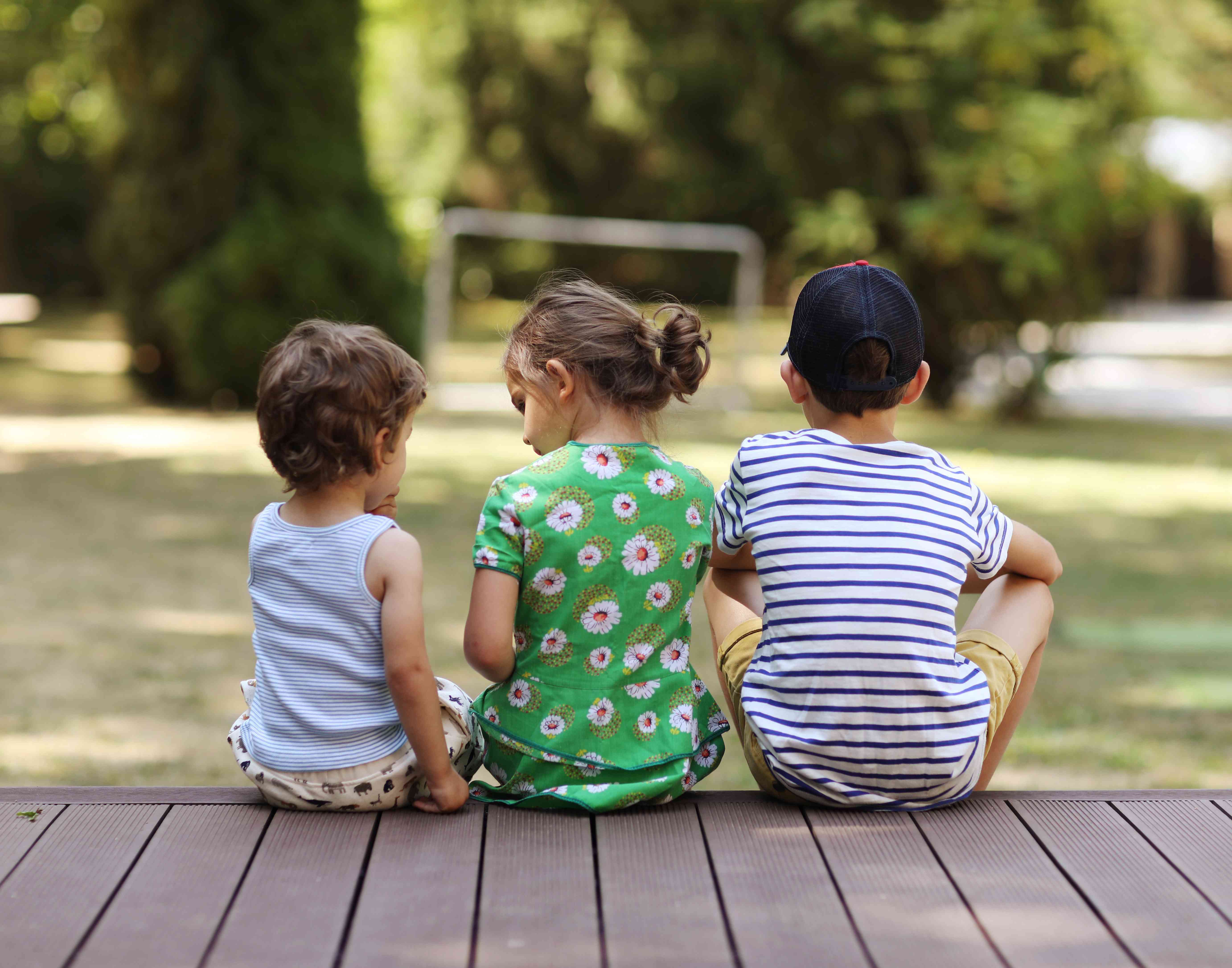Are You the Favorite Child? Science Uncovers the Key Traits Parents Value Experts revealed the lasting impacts of parental favoritism and shared tips to avoid playing favorites

A new study found the characteristics that make a child more likely to be their parents' favorite

Catherine Delahaye / Getty Images
- Parents tend to favor daughters, firstborns, and children who are more conscientious and agreeable, a recent study found.
- Parental favoritism can have lasting effects, including a higher risk for the unfavored child of developing mental health problems and unhealthy relationships.
- Experts suggested several tips for parents to promote equal treatment, such as encouraging close sibling bonds and avoiding comparison.
They may claim otherwise, but new research shows that some parents really do have a favorite child.
While all families are different, researchers found that parental favoritism tends to follow certain patterns. For example, daughters, firstborns, and those who display conscientious traits tend to be the most beloved sibling.
The research, published in the journal Psychological Bulletin, involved an analysis of more than two dozen studies concerning preferential treatment toward children, such as affection and the amount of resources given to each child.
“I personally found the findings about daughters to be the most interesting,” lead author Alexander Jensen, PhD, an associate professor at Brigham Young University’s School of Family Life, told Health. “Based on some past research, I assumed mothers favored daughters and fathers favored sons. I’ve taught that in my courses, but we found that both mothers and fathers favored daughters.”
Favoritism and parental differential treatment—known as PDT—have been tied to “a whole host of negative outcomes,” according to Jensen, from relationship issues to poorer academic success.
Because of that, “it is important to know which children might receive the short end of the stick,” Jensen said.
'Eldest Daughter Syndrome': Can Birth Order and Gender Really Affect Your Personality?Finding the Favorites
To investigate the siblings most likely to receive favored parental treatment, Jensen and his colleagues reviewed and analyzed the results of 30 journal articles, dissertations, and theses, and 14 databases, including nearly 20,000 participants. They examined how birth order, gender, temperament, and personality influenced preferential treatment.
Daughters, as well as children who were more conscientious, agreeable, responsible, and organized were more likely to receive favorable treatment. They were also less likely to have conflicts with their parents.
Favoritism "often isn’t a conscious choice that parents make and may boil down to the idea that children who are conscientious and agreeable are easier to parent,” Joseph Laino, PsyD, an NYU Langone Health psychologist and clinical assistant professor of psychiatry, told Health. “These children may be natural people-pleasers and highly attuned to the emotional states of their loved ones. Their easy-going demeanor and diligence may result in parents feeling more secure in their own parenting skills.”
Parents tended to give older siblings greater freedom than younger ones. That’s possibly due to the perception that they are more mature, Jensen said.
A parent’s gender had only a minimal effect on which child they tended to favor.
As a meta-analysis, the researchers noted that their report provides more reliable answers than a smaller, singular study. Jensen stressed, however, that the findings certainly don’t apply to all families. “There are families where parents favor sons, or where fathers favor daughters and mothers favor sons,” he said.
Nonetheless, Jensen said he hopes the study prompts parents to be “more introspective and honest with themselves about their own parenting.”
“Recognize that you may be inclined to give one child the benefit of the doubt more than another,” he said, “or you may be more affectionate with one child over another.”
How to Address PDT—and Stop Playing Favorites
Being the non-favored sibling doesn’t just feel bad day to day; it can actually leave a lasting impression.
Studies show that receiving preferential treatment from parents is linked to better mental health and healthier relationships. On the flip side, unfavored children have a higher risk of mental health problems, forging unhealthy relationships, and poorer academic success and self-regulation skills.
“Having healthy self-esteem is critical to developing the self-confidence one needs to perform optimally in academic and social settings,” Laino said. “A strong sense of self-confidence helps children feel better equipped to meet life’s challenges and believe they can accomplish their goals. If they feel good about themselves, they may be more willing to dream about what’s possible.”
According to MK Clarkin, LCSW, the executive clinical director at the mental health services provider Lifestance, parents shouldn’t take PDT lightly. “Take any signs of PDT seriously,” Clarkin said. They include acting out, asking for solo time with parents, and showing resentment toward a sibling.
If your child shows these signs, Clarkin suggested discussing their feelings openly and finding creative ways to meet their needs.
To avoid showing favoritism, Clarkin recommends:
- Having a consistent reflection of self and parenting styles with children
- Showing interest in your children’s interests and hobbies
- Asking your child open-ended questions about their interests
- Finding common ground and setting aside intentional time together
- Avoiding comparing your children
- Encouraging a close sibling relationship
- Role modeling and encouraging healthy communication
Additionally, parents should communicate to children that their siblings may sometimes require more attention due to their specific needs, and this doesn’t reflect a lack of equal love or care.
This story originally appeared on: Health News - Author:Lauryn Higgins


















